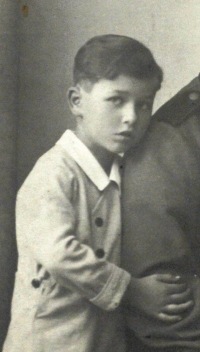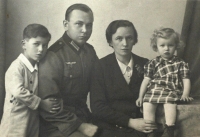One must be able to deal with the destiny and throw all of one´s cares away

Download image
Roman Frait was born as Roman Kugler on August 15, 1935 in Brno to a single German mother and a Czech father. The parents were not married. At the age of two, he suffered from infantile paralysis, which caused reduced mobility of his upper limbs. In 1939, his mother married German Bruno Frait, who passed on his surname to Roman. The family acquired the status of an imperial German and in the following years expanded to include daughters Mariana and Josefa. At the end of May 1945, Roman and his mother and sisters completed the infamous Brno death march to Pohořelice. They returned to Brno thanks to the intervention of the Czech part of the family. At the age of fifteen, in 1950 he decided to flee through the German Democratic Republic to the Federal Republic of Germany to visit his uncle. However, he was caught on the border and, under the name Roman Konstantinovich Novak, sent to a Polish youth home, from where he traveled to several Soviet factories. In 1952 he decided to flee back to Czechoslovakia. However, he was arrested in Uzhhorod and sentenced to 25 years for trying to escape. As a juvenile, they eventually reduced his sentence to one tenth. He ended up in Soviet work camps in Kazakhstan and was then deported to Arkhangelsk in northern Russia. After Stalin’s death, he was amnestied in the summer of 1953, but did not return home to Czechoslovakia until early 1954. In 1960, he was sentenced to 38 months for preparing to flee from his homeland and slander his fraternal nation. He suffered a serious injury while serving his sentence. Twenty months later, in 1962, he was released on amnesty. He worked as a plumber and earned extra money by various temporary jobs, for example as a nurse in a zoo or as a worker with a mobile feather cleaning. He got married five times during his life, fathering two daughters and a son. He finally acquired Czech citizenship in 2006.

